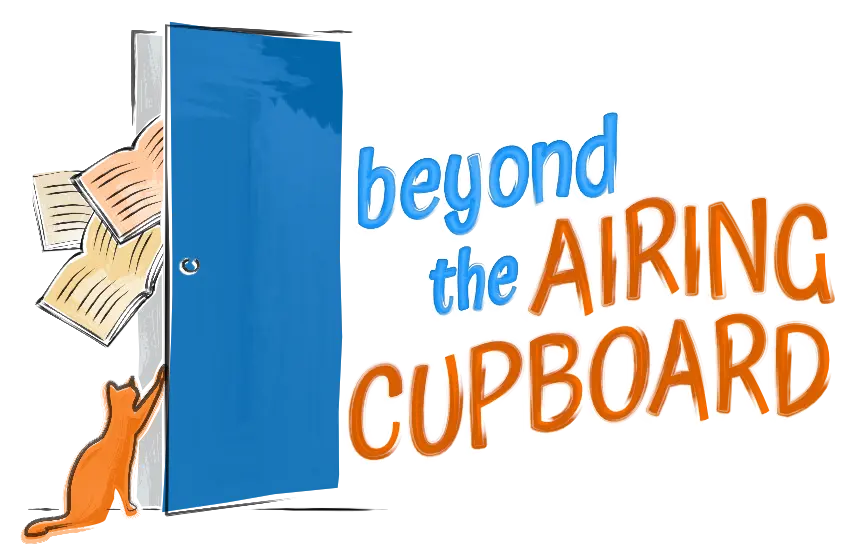Joanne Harris is an interesting writer. She is half French, lives near Barnsley in Yorkshire, has played in a rock band for decades and was a teacher before becoming a full-time writer. She is the chair of the SOA, the Society of Authors, and has had many quite public, strong disagreements with JK Rowling, mainly about gender issues, each being at the extreme ends of the discussion (opposite ends!) Joanne Harris also has a form of synesthesia where the senses crossover, so, seeing certain keys in music as colours or associating numbers with particular smells or, again, colours. When I read this about the author, I felt it explained her extravagant and delicious descriptions of food, where the visual and the olfactory mingle in a powerful fashion, even with an intangible waft of magic. And all that is before we talk about chocolate!
Do you remember the film Chocolat following the first successful book written by Joanne Harris? It starred Juliette Binoche, Johnny Depp and Judi Dench and was quite different from anything else around at the time. Building on that success, (why wouldn’t you?) there were several sequels including: ‘The Strawberry Thief’ and ‘Lollipop Shoes.’ In my experience a sequel, however good it is, is never quite as strong as the first book but there is now quite a fashion for producing ‘prequels’ … is that a real word I wonder? These are stories that tell us what happened before the original writing; its own backstory in a way.
Thus, we have ‘Vianne,’ the book which comes before ‘Chocolat’ and weaves together the history of the time in Marseille when she has been blown across the Atlantic from New York and arrives alone. She is looking for her life really. She needs a job, friends, a home and more: that feeling of belonging somewhere, having a sense of purpose, mattering to someone. Vianne is pregnant with no wedding ring and is constantly aware of the voice of her dead mother telling her to move on, not to settle, to go where the wind takes her. This literary trope of the wind changing is employed many times in these stories and actually reminds me of how it is used in Mary Poppins. It is a way of saying: don’t take things for granted, always be ready to move on. Food and chocolate play a large part in the narrative of both books and sometimes the effect is intoxicating, quite dizzying.
I enjoyed reading ’Vianne’ as I always like context, and then re-reading ‘Chocolat,’ the story felt weightier. The reader knows from where the characters emanate.
So, at the beginning of the second book, Vianne and her young daughter Anouk are blown into the remote village of Lansquenet-sous-Tannes. This is an imaginary village in south west France, situated on a tributary of the Garonne, (the real river!) In this rural French remoteness Vianne Rocher is othered. Do you understand that use of the word ? Suddenly it is a verb! It is modern parlance basically for prejudice, be it colour, race, religion or language. If a person or group of people are discriminated against, ostracised or victimised, then they are being ‘othered.’ This does not roll easily off my tongue but whatever, it definitely applies to the character Vianne in this book. She doesn’t fit in…and doesn’t wish to. She refuses to go to church, she wears bright and what are deemed to be unseemly clothes and worst of all, contrary to village culture, she opens a delectable, seductive chocolaterie at the worst possible time: the beginning of Lent. Is she a force for evil or good? It depends very much where you are standing.
Vianne knows about herbs and spices, she knows everybody’s favourite chocolate, she reads ‘the cards’ and appears to have a sixth sense, a third eye, call it what you will. Understandably the conservative villagers are suspicious but maybe you only perceive evil if you feel threatened. There is witchery here, or magic or indeed quiet criminality but many find that Vianne’s arrival raises their spirits and brings them happiness, in its many different forms.
If you haven’t read ‘Chocolat’ before then you are in for a decadent treat but do read ‘Vianne’ first.
Joanne Harris writes with subtlety and sophistication as she uses chocolate as a metaphor for both the serpent’s apple and the milk of human kindness. This is skilled and sensuous writing.
